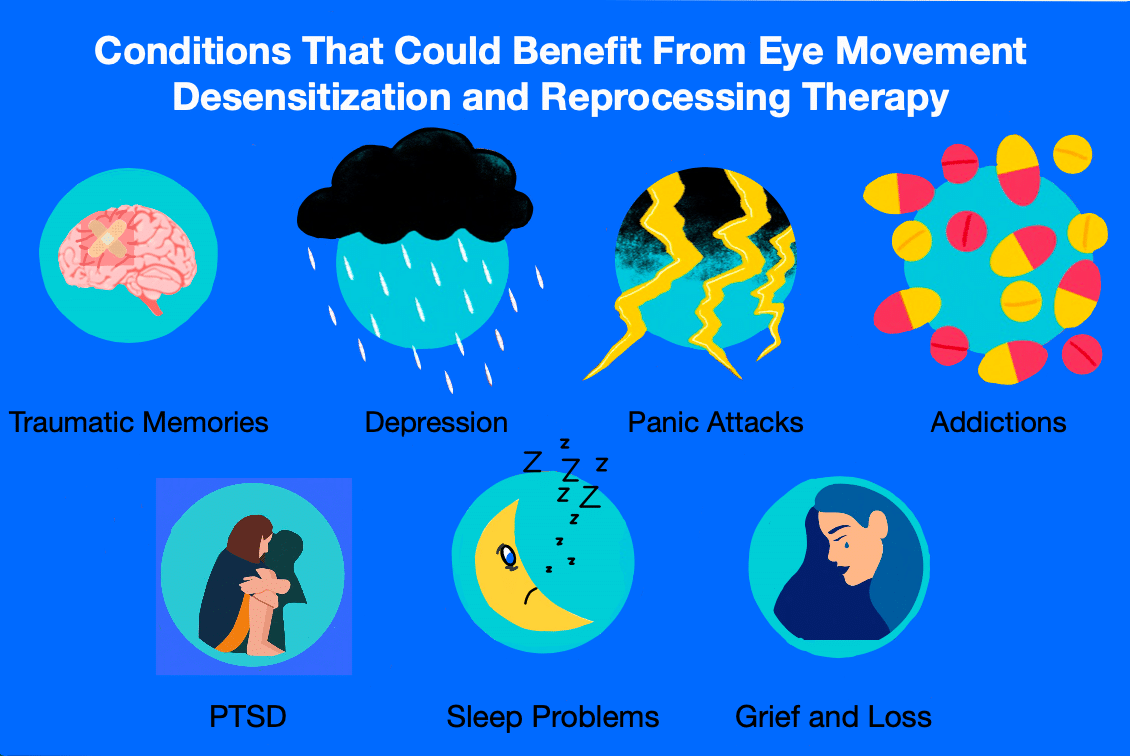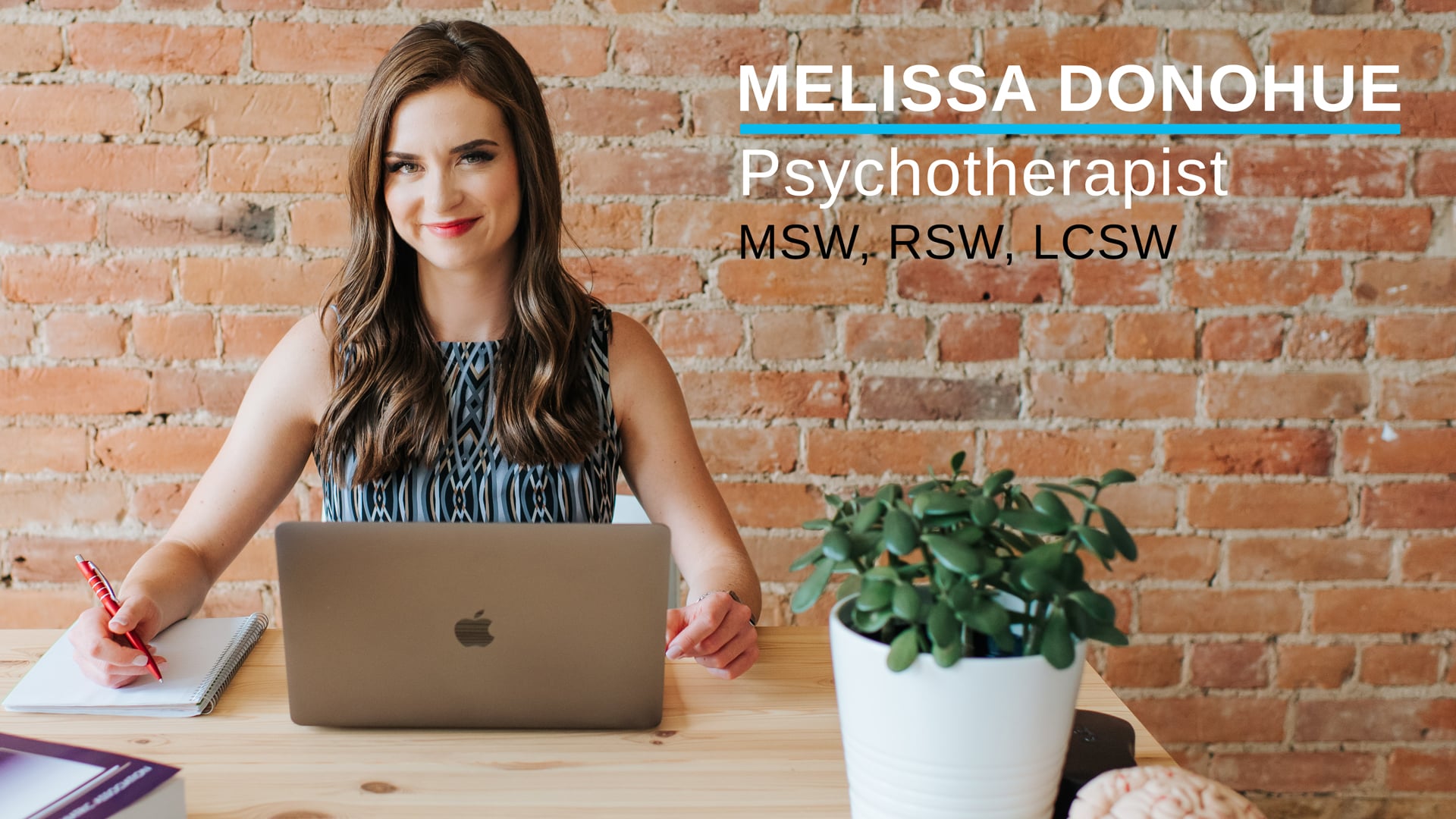What is Eye Movement Desensitization and Reprocessing Therapy (EMDR)?

by Striving for Synergy
Psychotherapy & Counselling Clinic

Let’s Learn About EMDR
Eye movement desensitization and reprocessing (EMDR) therapy aims to resolve unprocessed traumatic memories in the brain. This is as traumatic memories are often left unprocessed due to the brain trying to “protect” itself from the hardships of confronting and overcoming painful memories. Since its beginning, EMDR has transitioned from a PTSD-focused treatment to one that has been applied to a broader scope of conditions in order to identify and overcome previous painful life events.
EMDR is a structured therapy, composed of stages, that entails briefly focusing on a painful memory while simultaneously experiencing bilateral stimulation. This form of stimulation requires a stimulus to be applied to alternating sides of the body, and aids in the reprocessing aspect of the therapy. The stimulus varies, originally focusing on side-to-side eye movements, but now including other forms such as automated hand buzzers and alternating tapping motions on the chest.

When is EMDR Useful?
Bilateral stimulation (BLS) is a key component to EMDR’s efficacy in resolving trauma. It ensures both hemispheres of the brain are activated.
This is important as traumatic memories are often laterally stored in the right side of the brain, where visual and emotional functions are prominent. Hence why these unprocessed memories often bring up strong visuals that evoke strong negative emotions, causing us to feel ‘stuck’ and overwhelmed by them.
In activating the left hemisphere, the side of the brain where logic and language functions are prominent, the vividness and emotion attached to the memory are reduced. Ultimately aiding in the brain to reprocess the event.
Alongside the BLS phase of this treatment, clients can also expect to learn and utilize a variety of relaxation and stress management techniques. These skills will aid in coping with painful memories and emotions. Essentially providing you with a toolbox to aid you with your self-care throughout treatment.

Is EMDR Right for You?
As previously alluded to, EMDR can be used to address a variety of mental health conditions, emotional concerns, and non psychological health conditions. Such as PTSD and bipolar disorders, grief and loss, and substance abuse and sleep disturbance, respectively. This is as, at its core, EMDR aims to process unresolved painful life events. Such events can be catalysts of a multitude of mental, emotional, and physical conditions and symptoms, including but not limited to all the ones previously mentioned.
In sum, EMDR therapy encourages the brain to resume its natural healing process and aids to replace a trauma’s negative emotions, thoughts, and behaviors with positive ones. The trauma is still remembered, but the distress response from the event is resolved. However, it’s important to discuss with a therapist whether EMDR is the right choice of therapy for you.
A Little Science on How EMDR Works
Check out this short 2-minute video demonstrating how EMDR utilizes bilateral stimulation to tap into the brain’s innate ability to process and adaptively integrate memories. During bilateral stimulation (such as eye movements) both brain hemispheres engage, facilitating the movement of distressing memories from a state of emotional reactivity to a more balanced state.
This process fosters the brain’s rewiring, allowing the traumatic memories to connect with more adaptive information. This connection ultimately reduces the emotional intensity tied to the trauma. While the precise neurological mechanisms remain a subject of investigation, EMDR’s effectiveness in alleviating distress has shown positive impact on memory processing and emotional healing.
About us
Giving you room to heal
We provide in-person and virtual psychotherapy services across Ontario, Canada, with the majority of our clients residing in the Greater Toronto Area, Mississauga, Scarborough, Pickering, and Durham Region. Our services include individual therapy, family therapy, or couple's therapy, and group therapy.
Our approach respects you as a whole person, not just as the current struggle or ailment that you are experiencing. A member of our expert team will help you navigate your past and current experiences to facilitate growth and change for a brighter future.
Trusted by


Trusted by


Free
15 minute consultation.
Questions, or unsure if therapy is for you?
If this is your first time booking with us, we’re here to help you assess if we are the right fit for your needs. Book a free 15 minute phone consultation with our intake co-ordinator.



